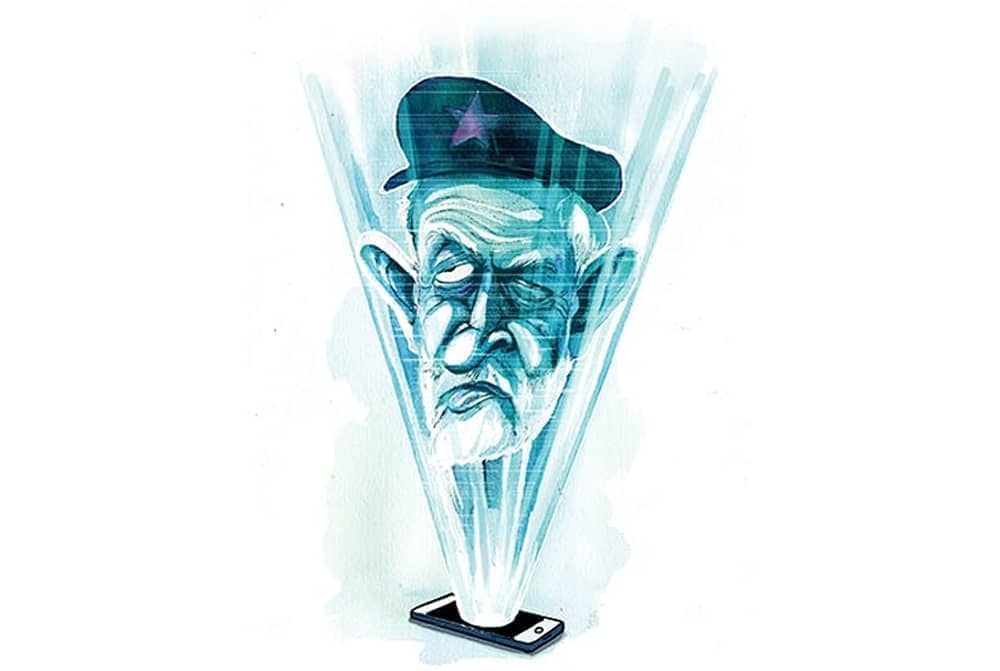For weeks, discussion about partygate dominated Britain’s newspapers. Russia’s invasion of Ukraine has put paid to that. But Boris Johnson is mistaken if he thinks he has been saved. Instead Keir Starmer is likely to be the biggest beneficiary of the Ukrainian crisis.
This might come as a surprise to some. After all, history suggests that a Conservative government should be able to benefit from this conflict by relying on its traditional reputation for being strong on defence and foreign policy in general. Yet the Ukrainian war is different, at least for now, to skirmishes that have arisen in the past. It is a conflict in which Britain has firmly taken a side but to which no British troops will be sent: the main impact on Britons will probably be confined to even higher energy prices and a steeper rise in inflation. Scuttling around the world stage in recent weeks, Boris Johnson appeared hopeful that waving the flag and making dramatic speeches was a way to make voters forget all about partygate. For now, he is probably right. But this sentiment among voters is unlikely to last.
Corbynites then find themselves in a much weaker position now than a week ago
Yet for Starmer, the crisis has presented a further opportunity to face down party critics. It is one he has grasped firmly. In the face of opposition within Labour ranks, and especially from its biggest trade union affiliates, moving the party away from some of the commitments made in the 2019 manifesto has proved tricky for the Labour leader. Since the autumn, Starmer’s fortunes have however improved. This is no doubt helped by poll leads courtesy of partygate. Critics like Laura Pidcock have effectively given up the fight, while the Socialist Campaign Group of MPs, once Corbyn’s Praetorian Guard, is divided over how best to respond as many fervent supporters of the former leader drift away to join those parties associated with the People’s Alliance of the Left.
The Ukraine crisis has only served to further weaken the Corbynite left, many of whom belong to Stop the War, an organisation set up to oppose war in Afghanistan. If today it is not exactly pro-Putin it is very much anti-Western and turns a blind eye to the shortcomings of any country – such as Russia – that finds itself in conflict with Britain or the United States. So, following the Kremlin line, it has blamed Nato ‘expansion’ for threatening Russia. This is a view it kept to even after Putin ordered troops into Ukraine; it issued a statement to that effect signed by 11 members of the Socialist Campaign Group, as well as Jeremy Corbyn himself. Threatened with having the Labour whip withdrawn, these MPs – including John McDonnell and Diane Abbott – all meekly agreed to remove their names. This was the equivalent of neither having your cake nor eating it: associating themselves with a deeply unpopular view about Nato culpability, the MPs then demonstrated their impotence by falling into line with the leadership. At the same time Starmer also severely curtailed the activities of Young Labour, long a redoubt of Corbynite resistance, for its representatives’ holding similar views about the conflict.
Corbynites then find themselves in a much weaker position now than a week ago. By miscalculating the public mood, they have handed Starmer the confidence to discipline them. The upshot will likely be a further exodus of Corbynites from Labour ranks. Perhaps, too, it will break the hold that Stop the War has enjoyed over some of the Labour left more generally by exposing its one-eyed view of international relations.
In the short-term, Ukraine has left Starmer stronger in his party. But Putin’s invasion also looks set to at least entrench his position in the country. Why? Because as the crisis developed, Johnson’s hope that it would allow him to play the statesman has been dashed. Partygate still casts a dark shadow of mistrust over the Prime Minister; just before the invasion, most voters thought he was mishandling the crisis. Starmer’s position has been consistently ahead of the game, calling for ever tougher sanctions, a position which enjoys majority support.
Until the crisis, few appeared to care about the extent to which the Conservative party has been bankrolled by Russian oligarchs. Since Putin’s invasion of Ukraine, all that has changed: we are now a long way from leading Conservatives being able to boast – as they had done so in the past – that donations from rich Russians were nothing to be ashamed of, and just showed how much such figures admired their party. Claims that ‘Moscow gold’ was funding Labour used to be meat and drink to Conservatives – it is more than possible that the favour can now be returned as a result of Putin’s war.






Comments